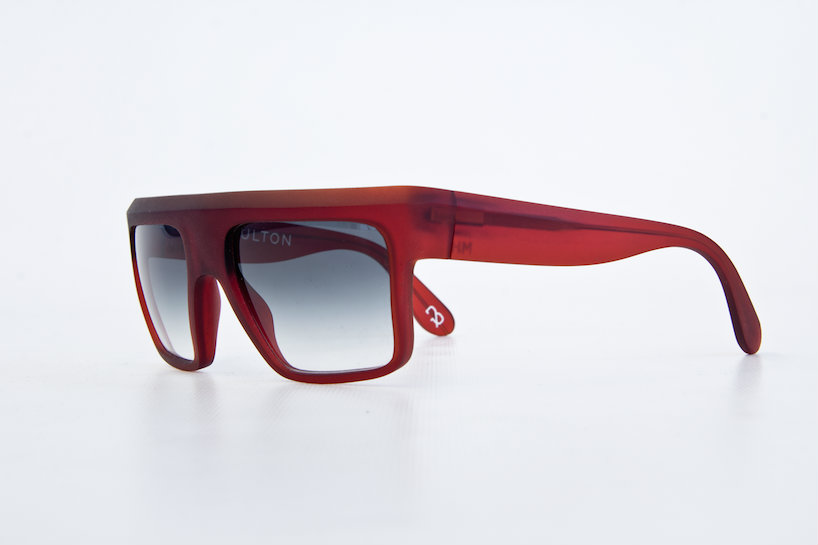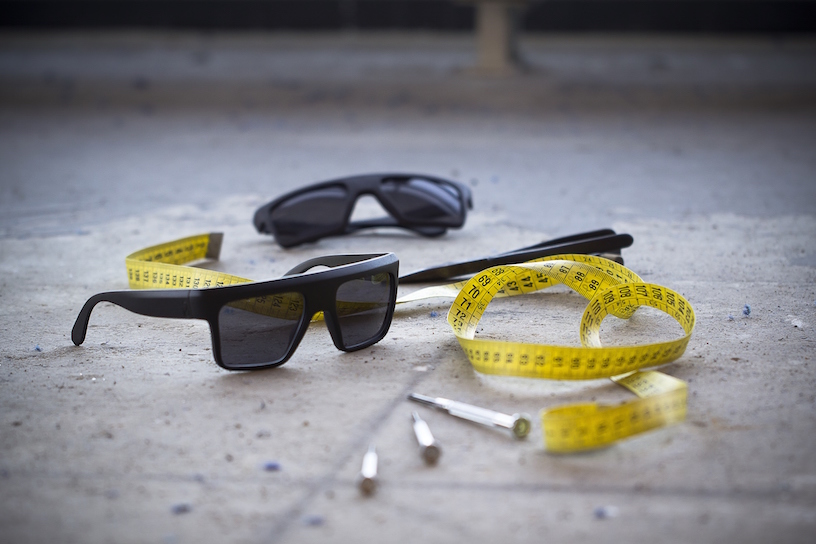On 3DPI, we have written many times about 3D printed eyewear. Glasses and sunglasses represent an ideal entry-point into sellable 3D printed consumer products, as they are too complex for everyone to make at home and, yet, simple enough for for young designers to get into. Moreover, since they sit right on your face, glasses are one of the products for which customization is most desirable.
Until now, however, we have only considered fused filament 3D printed glasses from small startups, or laser-sintered glasses from professional design studios. Boulton Eyewear, a new company from Amsterdam, is the first to implement photopolymer-based 3D printing to create its consumer-ready eyewear lineup. It is also one of the first companies to offer a consumer ready photopolymer-based product. Personally, I think that the use of liquid resins is key to the future of 3D printed manufacturing for final products as it is – as of now – the only technology which has been used for multi-material and multi-color manufacturing.
Boulton’s project leverages other previous important developments in the region. The Netherlands have been home to the birth of the concept of consumer 3D printing, through designers such as Janne Kyttanen and ambitious projects like 3D Hubs. It seems logical that the next step in consumer 3D printing – that is, the use of standard SLA, SLA-DLP and other resin based technologies to create end-use products – would originate here, as well.
One of the issues in the use of photopolymer resins is that these are generally materials that simulate the characteristics of end-use materials and often deteriorate over time. Materials research is advancing fast and it is likely that the durability reached thus far is compatible with eyewear, which are products that are often replaced along with changing fashion trends (for myself, this is a non-issue, as I would probably loose them long before the material’s deterioration).
Boulton uses DLP technology to produce its sunglasses and turned to the number one company in this field to supply the machine and materials: EnvisionTEC. Although the specific material used is, as of yet, undisclosed, as far as I know, this is one of the first consumer product ventures using EnvisionTEC technology and it will be interesting to follow up on it to see where it is heading.
Right now, it is heading for Kickstarter. The campaign went live a few days ago and seeks €35,000 to start manufacturing five different, fully-customizable models of sunglasses. These range in price from €235 (for early birds) to €325 (for the normal pledge of the most expensive design). Lenses are not 3D printed (even with powerful glasses, functional glass 3D printing is still a mirage) and need to be purchased additionally. Because they are 3D printed, the glasses can be fully personalized with the exact shape and measurements of one’s face.
Boulton achieves this by analyzing a series of photos to create an accurate point cloud. This method is similar to that employed by Normal, another well-known personalized, 3D printed consumer product manufacturer focusing on earphones. The 3D printed eyewear does have to go through a post-production process, although there is no doubt that the use of high-resolution DLP allows for a much smoother finish than any other 3D printing technology. With some strong enough lenses, you can even see the next generation of consumer products starting to take shape.






